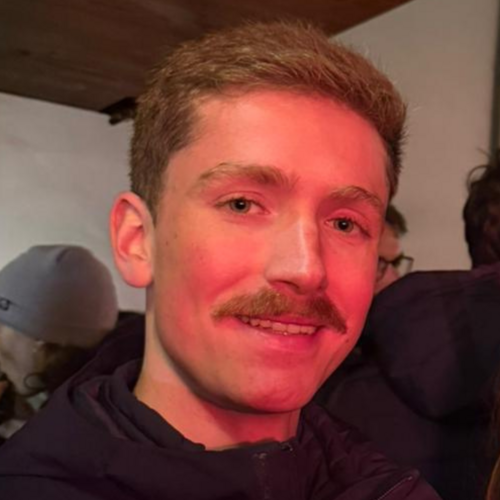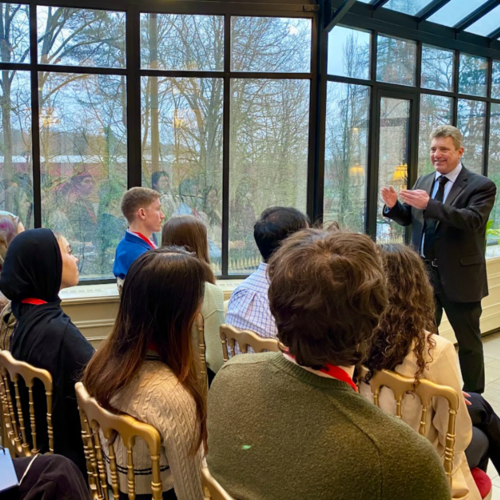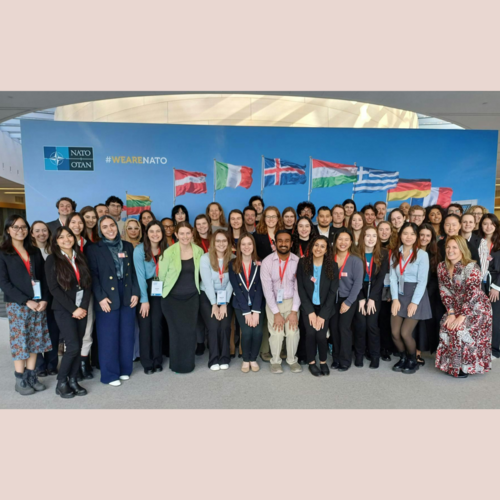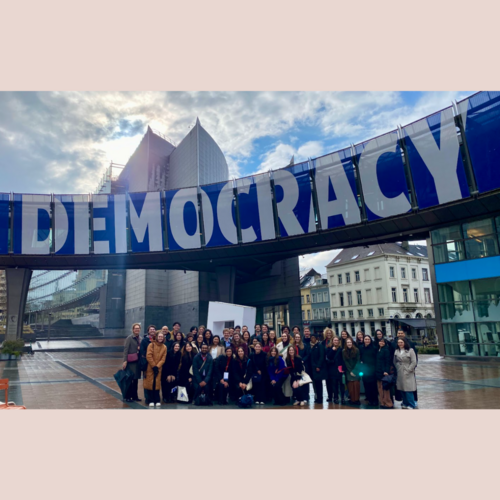Every year, Fulbright Austria sends 1–2 program participants to Belgium to participate in the annual EU-NATO Seminar hosted by Fulbright Belgium / Luxembourg / Schuman. The seminar brings together US Fulbrighters from all over Europe and provides them with an opportunity to learn more about the EU and NATO and to network along the way. The 2025 seminar took place from 25 February to 1 March, and Fulbright Austria was represented by US Fulbright combined grantee Elias Podber.
EU-NATO Seminar 2025
20 März 2025Read about 2024–25 US Fulbright combined grantee Elias Podber's experience at this annual event that brings together Fulbright program participants from countries all over Europe.
By Elias Podber
2024–25 US Fulbright combined grantee
This year, I was given the opportunity to represent Fulbright Austria at the EU-NATO Seminar in Luxembourg and Brussels. From witnessing deliberations over EU law at the European Court of Justice (ECJ) to engaging in interactive briefings with NATO staff, I learned firsthand about the institutions very much at the forefront of global politics and governance today. During the week, I had the additional privilege of meeting 46 other Fulbright students and scholars based in nearly every European country. This part of the program was particularly impactful because of the sense of Fulbright community it instilled in me and the meaningful relationships I formed.

Shortly after I arrived in Luxembourg City, the seminar commenced with a trip to the US embassy to Luxembourg for an opening reception, where Fulbrighters, embassy employees, and guests enjoyed a chance to converse over some light drinks and snacks. When we convened the next day, we were treated to a rich debate––largely in Italian, translated live through our earpieces––on the topic of unfair terms in consumer contracts at the ECJ before hearing two deeply engaging lectures by EU judges, including the president of the court. The following day in Brussels began with a visit to the European Commission (EC), where we heard from two EC employees on the commission’s innerworkings and the future of environmental policy on the continent. Later we visited the European Parliament, where we once again heard from an excellent speaker––and pestered him with unending questions––about the European Parliament’s role in the EU law-making process.


We spent our final day of the seminar at NATO headquarters taking part in interactive briefings about the organization’s agenda, US-NATO relations, and nuclear deterrence from speakers like the US chargé d'affaires and members of the departments of public diplomacy and defence. We made one last stop at the US mission to the EU to hear from US Foreign Service officers about their careers and experiences as diplomats. The speakers at these institutions helped inform my current research on how Austria’s right-wing populist party affects the execution of its neutrality by providing insight into the implications of domestic politics at the international level. I also relished the unique opportunity to meet and speak with the people who are working on the front lines of international politics.


Due to current international political events and changes, I found it particularly unique to be visiting NATO and the EU in 2025. As the landscape changes in front of our eyes, witnessing the people who are actively working to adapt was both captivating and inspiring. Among other topics like their diverse research projects and cultural experiences in their host countries, I had regular conversations about this with other grantees throughout the week. These grantees made the seminar particularly special, and the quality of the people I met is testament to the outstanding nature of the Fulbright Program. Thank you to Fulbright Austria for providing me with the chance to meet these Fulbrighters and EU and NATO employees and to learn about these institutions.
Elias Podber is a 2024–25 US Fulbright combined grantee living in Innsbruck during the program year. As a combined grantee, he is teaching English at Austrian secondary schools and working on a research project entitled The Legacy of Austrian Neutrality and Its Impact on Right-Wing Populism.